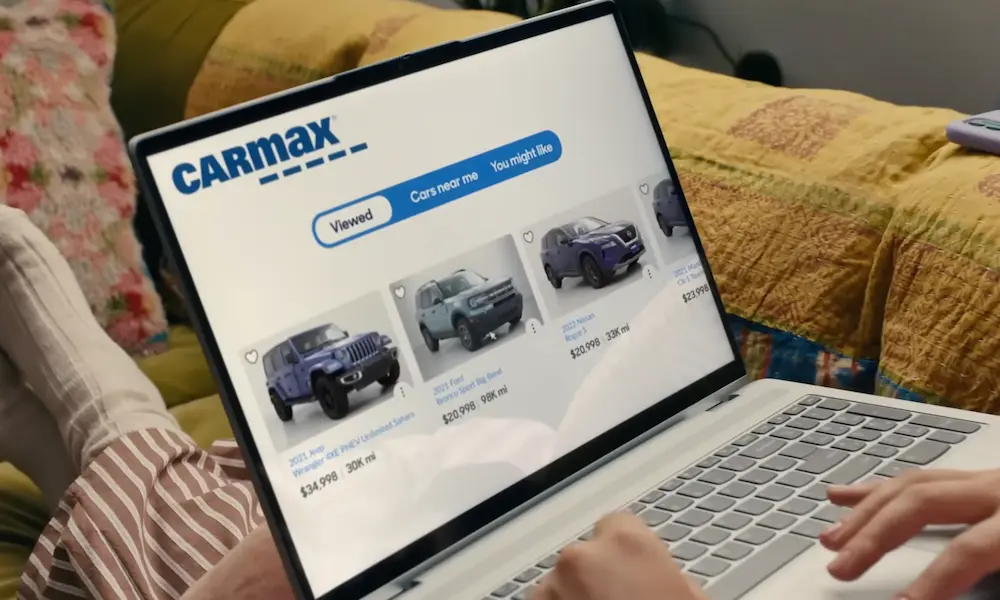Buying a car in New Jersey from out of state can seem daunting but it’s completely doable with the right information. You’ll need to visit the New Jersey MVC in person to complete your registration process. Make sure you have all the required documents, like the vehicle title and proof of address, so you can hit the road without any hiccups. Ready to solve your problem? Keep reading!
Understanding New Jersey’s Car Buying Regulations
When buying a car in New Jersey from out of state, you need to comply with specific regulations to ensure a smooth process. Pay attention to the paperwork requirements, tax obligations, and the titling process at the New Jersey Motor Vehicle Commission (MVC).
Compliance with MVC Requirements
To buy a car in New Jersey, you need to follow strict rules set by the New Jersey Motor Vehicle Commission (MVC). Both you and the seller must complete specific paperwork.
Key steps include:
- Obtaining the vehicle title from the seller
- Completing a bill of sale
- Ensuring the seller’s signature is on the vehicle title
You may also need to visit an MVC vehicle center to finalize the documents. Always call the central MVC office at (609) 292-6500 for accurate information on your specific situation. This ensures you have all necessary forms and understand the fees involved.
New Jersey Sales Tax Obligations
When purchasing a car in New Jersey, you need to handle sales tax correctly. The sales tax rate is an essential aspect of your purchase.
- Current sales tax rate: 6.625%
- Exemptions: Some vehicles may be eligible for tax exemptions, depending on their type and use.
If you buy a car from out of state and register it in New Jersey, you may need to pay the difference if the other state’s tax rate is lower. Verify all details with the New Jersey sales tax office at (800) 242-5846. This step helps you avoid any unexpected costs.
Titling Process in New Jersey
The titling process is crucial when buying a car from out of state. You must transfer the title to your name at the MVC.
Key features include:
- Submitting the signed vehicle title
- Paying the title transfer fee (usually $60 for standard titles)
- Providing proof of identity and residency
If the vehicle has a lien, the title transfer fee may increase to $85. Make sure to visit the MVC vehicle center or their website for detailed instructions. Completing this process correctly helps you avoid legal issues and ensures the vehicle is properly registered in your name.
Preparing to Purchase Your Out-of-State Vehicle
When preparing to buy a car from out of state, there are several important steps to consider. These include researching reliable used cars, assessing the car’s history, and calculating the purchase price along with any additional costs.
Researching Reliable Used Cars
Start by looking for used cars known for their reliability. Check reviews and ratings from trusted sources to find models that have a good track record. Consider certified pre-owned vehicles as they often come with warranties and have passed thorough inspections.
Make a list of a few models you are interested in. Then, look for those models in online listings, keeping an eye on mileage, condition, and price.
Keep in mind that prices can vary by state, so compare similar vehicles in different locations to find the best deal.
Assessing the Car’s History
Before traveling to see the car, get a vehicle history report from Carfax or a similar service. This report includes information about previous owners, accidents, and any major repairs. A clean history report increases the car’s reliability and reduces your chances of running into problems down the road.
Verify the VIN (Vehicle Identification Number) on the car matches the report. If you find any discrepancies, ask the seller for clarification. Not all sellers are upfront about a vehicle’s past, so it’s crucial to do your own research.
Calculating Purchase Price and Additional Costs
It’s not just the sticker price you need to think about. There are other costs like sales tax, registration fees, and possibly even shipping costs. Contact your local DMV to know the exact fees.
Create a budget that includes the purchase price, additional expenses, and unexpected costs so you aren’t caught off-guard. Remember to factor in insurance quotes as well. It’s smart to compare different insurance providers to find one that offers a good rate for your new vehicle.
Completing the Paperwork and Payment
Buying a car in New Jersey from out of state involves specific steps and documentation. You’ll need to handle the title transfer and ensure all necessary paperwork is in order.
Transferring Vehicle Ownership
First, make sure you have the vehicle title from the seller. You and the seller must sign this document. Check for any liens on the title because these must be resolved before you can complete the transfer.
A bill of sale is also essential. This document includes important details such as the sale price, odometer reading, and signatures from both parties. It serves as proof of purchase for the buyer.
When you’re registering the vehicle, you’ll need to fill out the Application for Vehicle Registration (Form BA-49). This, along with proof of car insurance and the old registration, must be submitted to the New Jersey Motor Vehicle Commission (MVC).
Finalizing the Sale with Proper Documentation
To finalize your purchase, you must pay the necessary fees. The usual title fee is $60. If the vehicle is financed and has a lien, the fee is $85.
If you’re bringing a vehicle from out of state, be ready to pay New Jersey sales tax. The rate may vary depending on the original purchase state regulations.
Make sure to get the proper license plates for your vehicle. Depending on the vehicle’s type and weight, this can affect the cost. Also, if applicable, take advantage of any tax exemptions.
Keep these documents organized and in a safe place. This ensures a smoother process when dealing with New Jersey’s regulations.
Navigating Title and Registration Procedures
When buying a car in New Jersey from out of state, understanding the steps to transfer the title and register the vehicle is crucial. Here’s what you need to know to keep things smooth and simple.
Applying for New Jersey Title Transfer
To start, obtain a Universal Title Application from the New Jersey Motor Vehicle Commission (MVC). This form is essential for transferring the vehicle title to New Jersey. You will need the current vehicle title, signed over to you by the seller.
Make sure the title includes the odometer reading and the date of sale. If the car is financed, you’ll also have to provide information about the lienholder. The standard title transfer fee is $60, while a financed vehicle with one lien costs $85.
Submit your documentation along with proof of identification and residency. If you purchased the vehicle out of state, you may need to submit it by mail to a specific MVC address here.
Registering Your Vehicle in New Jersey
Once you have completed the title transfer, you need to register your vehicle. Gather the necessary documents including the completed vehicle title, proof of car insurance, and your Application for Vehicle Registration (Form BA-49).
Don’t forget the previous registration if the car was registered in another state. Visit your local NJ MVC office to submit these documents and pay the registration fees. Standard registration fees are determined by factors such as the vehicle’s age and weight.
You’ll also need to order New Jersey license plates if you don’t have any from another vehicle. Special considerations are available for transferring existing plates to immediate family members for a small fee of $4.50.
Ensuring Legal Ownership and Insurance
Buying a car in New Jersey from out of state requires careful attention to legal ownership and insurance. Ensuring that the vehicle has a clear title and that your insurance complies with New Jersey laws are crucial steps.
Securing a Clear Title and Checking for Liens
When buying a car, ensure the title is clear and free of any liens. A lien means the car has a debt attached to it, often from a loan or financing. Check the title for any lienholder information to verify that there are no active liens.
You can obtain a Vehicle Identification Number (VIN) report to confirm the vehicle’s history and see details about any liens. If there are existing liens, contact the lienholder to resolve them before completing the purchase. Make sure the seller provides a lien release if any debts have been paid off.
Double-check all documents for accuracy, including the vehicle’s mileage statement and bill of sale. This ensures no surprises when you go to register the car in New Jersey. It’s essential to avoid cars with hidden legal issues.
Obtaining Car Insurance Compliance in New Jersey
After securing the title, you must comply with New Jersey’s car insurance requirements. Liability insurance is mandatory and covers potential damages or injuries you might cause in an accident.
Contact reputable insurance companies to get quotes and ensure you’re getting the best rate. Make sure your car insurance policy includes the minimum required coverage according to New Jersey law.
Different states have different rules, so it’s essential to update your insurance if you’re moving to New Jersey. Discuss your coverage with your insurer to ensure it meets the state’s requirements.
If you are a student or military personnel temporarily in New Jersey, you may have exceptions. Verify these details with your insurance provider to stay compliant.
Final Steps Before Driving in New Jersey
There are a few key tasks you must complete before you can legally drive your new car in New Jersey. These involve meeting inspection and emissions regulations and acquiring your vehicle’s temporary tags and permanent plates.
Understanding Inspection and Emissions Requirements
When you bring a car from out of state, it must pass a New Jersey state inspection and emissions test. This includes checking the car’s safety features and its emissions system.
You will need:
- Vehicle Identification Number (VIN): Ensure that the VIN is clear and matches your paperwork.
- Insurance Proof: Keep a copy of your car insurance ready.
- Past Inspection Records: If available, provide records from previous inspections.
If your car fails the inspection, you will have a set period to make necessary repairs and retest it. Retests are free if done within the specified time.
Acquiring Temporary Tags and Permanent Plates
While waiting for your permanent plates, you can obtain temporary tags. Temporary tags are valid for 30 days and allow you to drive legally.
Steps to get temporary tags:
- Complete the Application: Fill out the necessary forms at your local MVC office.
- Pay the Fee: There is a small registration fee.
- Submit Proof of Ownership: Provide your car’s title and bill of sale.
- Show Insurance Proof: Ensure your insurance is up to date.
Once your temporary tags expire, collect your permanent plates by submitting additional documents like your inspection certificate and registration fee payment. You will receive a mailing envelope containing your new plates.














